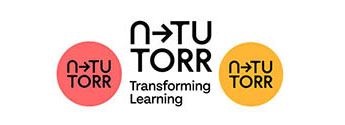Fighting Game Meta Guides

Passion in Fighting Games: 3 Tips for measuring yourself and avoiding burnout
How much of ourselves do we put into fighting games? An issue that is close to the bone for even remotely competitive players. This topic has become the subject of discussion in the Twittersphere last week. My name is Liam, and being a player myself, I was surprised that something so close to our hearts and lifestyle as this was not brought up more often.
This topic was brought to light recently after @furerumatsu’s tweet about a New York Times piece on hobbies and a feeling of needing to excel in them. They rightly relate this article back to fighting games, perhaps one of the most apt dichotomies between enjoyments of a hobby and drive to excel/compete. Fighting games are inherently competitive in how they pit players one on one. While games themselves are generally regarded as casual, enjoyable pastimes. These images are obviously in direct contrast with each other. Players may find they begin to play in a casual sense but later become absorbed in the competitive nature of the games and trying to improve themselves to one-up the opponent.

Professional player ‘Tokido’ showing the fierce level of competition in ‘Street Fighter V’ at ‘EVO 2017’
Confronting this issue, discussed in the New York Times article, is difficult, due to how opposed the ideals of a hobby and a competition are. I believe that some semblance of an answer lies in passion. Here, passion is our drive to do something that gives us genuine enjoyment, fulfilment or satisfaction, regardless of the work it may take. The amount of passion players have for fighting games will vary but they often don’t take this into consideration. They can throw themselves headfirst into a sometimes highly competitive environment without considering their own position. When the grind starts to wear on you, when you can’t take a loss and move on, perhaps you are over-investing. If your passion is sufficient, then the hard work of training and loss won’t feel as much like hard work, compared to how rewarding it may be for you in the end. It’s important to consider one’s own level of passion and judge your time investment accordingly.
There are a few key things to watch out for;
- Training burn out – If you feel burned out after training more often than fulfilled or rewarded, you’re probably giving it too much time/effort!
- Living with loss – If you find yourself angry or depressed frequently after taking losses, then you may want to rethink your approach and whether you’re staking too much on victory.
- Passion varies! – There are lots of ways to express passion in the fighting game community. Artists, casual players, making friends, making online content. You may still love the games and the communities, but just need to step away from the competitive scene.
In closing: Consider where your own passions lie. And measure your own investment in fighting games relative to how rewarding they feel to you! Not relative to an expected level of competitiveness or otherwise.

Liam Meehan, is a student of Digital Media & Society at GMIT Mayo from 2014-2019. He is passionate about digital social marketing and interactions as well as image editing and content creation.
Connect with him on LinkedIn or Twitter.








Recent Comments